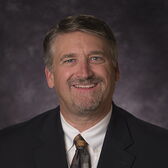Processing Your Payment
Please do not leave this page until complete. This can take a few moments.
- News
-
Editions
-
- Lists
-
Viewpoints
-
Our Events
-
Event Info
- Business Leaders of the Year Reception 2025
- Women's Leadership Forum 2025
- On the Road with Mainebiz in Bethel
- Health Care Forum 2025
- On The Road with Mainebiz in Greenville
- On The Road with Mainebiz in Waterville
- Small Business Forum 2025
- Outstanding Women in Business Reception 2025
- On The Road with Mainebiz in Bath
- 60 Ideas in 60 Minutes Portland 2025
- 40 Under 40 Awards Reception 2025
- On The Road with Mainebiz in Lewiston / Auburn
- 60 Ideas in 60 Minutes Bangor 2025
Award Honorees
- 2025 Business Leaders of the Year
- 2024 Women to Watch Honorees
- 2024 Business Leaders of the Year
- 2023 NextUp: 40 Under 40 Honorees
- 2023 Women to Watch Honorees
- 2023 Business Leaders of the Year
- 2022 NextUp: 40 Under 40 Honorees
- 2022 Women to Watch Honorees
- 2022 Business Leaders of the Year
-
-
Calendar
-
Biz Marketplace
- News
- Editions
- Lists
- Viewpoints
-
Our Events
Event Info
- View all Events
- Business Leaders of the Year Reception 2025
- Women's Leadership Forum 2025
- On the Road with Mainebiz in Bethel
- Health Care Forum 2025
- On The Road with Mainebiz in Greenville
- + More
- On The Road with Mainebiz in Waterville
- Small Business Forum 2025
- Outstanding Women in Business Reception 2025
- On The Road with Mainebiz in Bath
- 60 Ideas in 60 Minutes Portland 2025
- 40 Under 40 Awards Reception 2025
- On The Road with Mainebiz in Lewiston / Auburn
- 60 Ideas in 60 Minutes Bangor 2025
- - Less
Award Honorees
- 2025 Business Leaders of the Year
- 2024 Women to Watch Honorees
- 2024 Business Leaders of the Year
- 2023 NextUp: 40 Under 40 Honorees
- 2023 Women to Watch Honorees
- 2023 Business Leaders of the Year
- + More
- 2022 NextUp: 40 Under 40 Honorees
- 2022 Women to Watch Honorees
- 2022 Business Leaders of the Year
- Nomination Forms
- Calendar
- Biz Marketplace
'Go ahead and do it': Business trailblazers talk leadership in Mainebiz forum
 Screen shot
Close to 600 registered for Wednesday's Mainebiz Women's Leadership Forum, which was moderated by Mainebiz Publisher Donna Brassard, top left.
Screen shot
Close to 600 registered for Wednesday's Mainebiz Women's Leadership Forum, which was moderated by Mainebiz Publisher Donna Brassard, top left.
More Information
Last weekend, when Portland craft bewer Rising Tide reopened its patio in East Bayside for seated table service, owner and business operations director Heather Sanborn was working the front of house with the rest of her staff, greeting each customer with a request to wear a mask. She was also bussing tables.
"Being willing to be in the trenches, and being willing to do all the things that you ask your staff to do is a powerful way of leading," she said in Wednesday's Mainebiz Women's Leadership Forum.
Held virtually for the first time in its decade-long history, the 2020 forum focused on the five principles of leadership articulated by authors Barry Posner and James M. Kouzas in their book, "The Leadership Challenge."
The first of these is "Lead by example: Model the way," which Sanborn has demonstrated in launching a new business, in a role that has changed several times during the pandemic.
Wednesday's hour-long discussion, moderated by Mainebiz Publisher Donna Brassard, was peppered with insights, personal anecdotes and advice from all five panelists on the leadership principles.
Nearly 600 people registered for the event, which drew about 250 to last year's in-person discussion.
Sanborn, who also serves in Maine's state Senate, was joined on the panel by Donna Dwyer, CEO of My Place Teen Center, a Westbrook-based nonprofit serving at-risk young people; Tanya Emery, director of economic and community development for the city of Bangor; Laurie Lachance, Thomas College president and Maine's first female state economist; and Lois Skillings, president and CEO of Mid Coast-Parkview Health, part of the MaineHealth system.
Here are some of their insights into the other leadership principles discussed.
Lachance: Provide direction and inspire a shared vision
During her 29 years as a professional economist, Lachance never subscribed to the notion of being a "dismal scientist," ending every economic talk with thoughts on "here's what we can do about this."
Taking the same approach at the helm of the Maine Development Foundation, she embraced the theme of "Just imagine" at annual meetings to highlight amazing things going on "to increase pride and hope." Today at Thomas College, where many students are first-generation college students. Despite some predictions that one out of four colleges will disappear in the next 10 years, "we've been able to inspire a vision of what we can do not only to survive but to thrive," she said.
Skillings: People influence the outcome
Skillings compared leadership to the Greek myth of Sisyphus, who had to roll a boulder up a mountain. The leader's job is to create ledges on the hill so the boulder can rest for a while, listen to people's concerns, and then bring the boulder back up again and let it rest on another ledge. "I'm not big on the process of buy-in," she said. "I more like the idea of engagement, so that people are influencing the outcome."
Dwyer: Engage people and challenge the process
Recalling the time 11 years ago when Dwyer was interviewed by a young teenage woman at My Place Teen Center when applying for her job, she remembers a question that stunned her: "Do you have the skill set to keep the Red Doors open so that my brother coming up behind me will still be able to come?" Even at 17 years old, Dwyer said, the young woman had the wherewithal and the poise to want to know whether the job candidate, Dwyer, had the capacity to make change and inspire vision.
"As I'm talking with her after the interview and what not, my heart was just singing," Dwyer said, "because I just thought, please, please, give me this job."
"Your heart is really your karmic footprint, and how you express that heart is your legacy," said Dwyer. Describing My Place Teen Center's mission as "honing grit and cultivating compassion," she talked about how that mission changed to serving hot dinners during the pandemic and recalled the time a white woman expended vitriol at seeing My Place Teen Center staff delivering meals delivered to a black family.
The staff member told her: "We serve anyone from anywhere, and if you just give us a call, we'll serve you and your neighbors, it doesn't matter where you are." Both incidents made clear "how important that expression of heart is no matter who you're dealing with."
Emery: Enable others to act
Emery said that while a lot of people think of economic development as transaction-based, she has never looked at it that way, going back to the time she worked for a startup right after college.
"You have to have the business fundamentals to help support businesses in making good decisions,"she said. "That's what at its core economic development is, because if you are trying to handcuff a business into choosing your community and it's not the right business decision for them, they're going to be unsuccessful, you're going to be unsuccessful, it's a lose for everybody."
In her present job, that means working with everyone involved in a project, while she's the convener in some situations helping to create the environment where that project can happen.
What panelists would tell their younger selves
Wrapping up the event, panelists shared the advice they would give their younger selves or wish they had known: "Quit taking it personally" (Emery); "read the email again before sending it" (Sanborn); "go ahead and do it, and apologize afterwards" (Dwyer); "embrace who you are" (Lachance); and, appropriately from Skillings, in the health care sector, "take better care of yourself."
'Lots of good advice'
Among male listeners who tuned in was Martin Grohman, executive director of the Environment and Energy Council of Maine, or E2Tech.
"I thought it was a powerful take on what it means to be a manager, male or female, with lots of good advice," Grohman told Mainebiz afterwards. "But it was also very real for me to hear directly from this panel of successful women that we just plain set different expectations for female managers, and that is full-on unfair."
Forum replay
If you missed the Mainebiz Women's Leadership Forum live on Wednesday — or just want to recall the advice of its five expert panelists — you can always view the replay online.














0 Comments